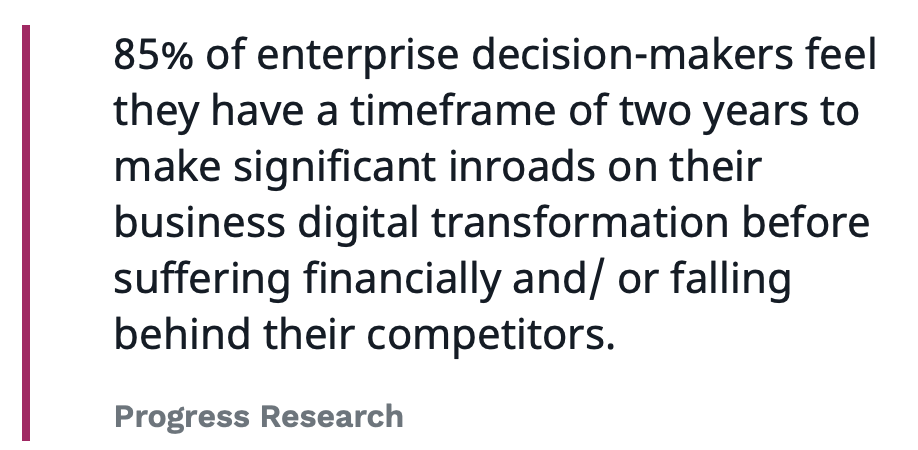Digitization: B2B is more complicated then B2C
The way that businesses and their customers communicate with one another is significantly being impacted by digitization. Despite realizing the promise of digitalization for their business models, B2B enterprises are still far from completely exploiting it. Companies have to adapt, strategize, and transform if they want to continue doing business.
Giving business clients access to an online store is no longer the only aspect of B2B commerce. Whether it’s B2B or B2C, business digital transformation also encompasses strategy, culture, organization, business models, and go-to-market approaches. Thus, companies must also think about ways to automate and digitize operations, which are still frequently manual. The altered behavior and heightened demands of B2B buyers during the acquisition process are added to this. B2B retailers now anticipate a similar shopping experience to that of B2C customers. Research from Gartner predicts 80% of B2B sales will move to a hybrid sales model by 2025. Additionally, according to a survey conducted by McKinsey, 70 percent of B2B decision makers say they are open to making new, fully self-serve or remote purchases in excess of $50,000, and 27 percent would spend more than $500,000.

After the huge hit of Covid19, for businesses to succeed in the medium to long term and to differentiate themselves from the competition, they must have a digitization plan for e-commerce. It is insufficient to just upload and publish catalog online. Without overdoing things, businesses need to incorporate B2B commerce into their overall digital strategy. The key element is to remember in this digital process is to think big when developing processes, but start with smaller when creating components.
A large percentage of B2B enterprises now provide digital procurement choices to their corporate customers. However, these are frequently based on strict, obsolete technologies that cannot keep up with today’s online presence requirements. Bringing data from various sources, manufacturers, and partners together on a trading platform is one of the biggest barriers for B2B vendors. In order to design technology, data and process systems so that they can readily adapt to new market demands and grow with the development of new business areas and communication practices, scalable and flexible software solutions are required.
Personalized content and a customized approach, which have long been existing in the B2C market, are still not given enough consideration in the B2B market. It is frequently forgotten that B2B clients also desire a personal contact. B2B buyers frequently change their typical shopping habits from their private end-customer behavior and seek out solutions that are specifically adapted to their needs. Existing customer data has a lot of potential to customized customer experience and an excellent user-experience in the business environment if it is integrated and used wisely.
Digital commerce involving businesses can be much more complicated and chaotic than digital trade between consumers since it calls for digital ecosystems that can quickly adjust to changing needs. Solutions enabling autonomous and highly scalable commerce enable quick and smooth migration from legacy systems. Because frontend and backend are separate, new features and products may be added without disrupting existing customers’ experiences, and system development can be provided with little to no downtime.
Businesses that adopt digital transformation will be able to take advantage of numerous benefits. With the proper implementation and good use of digital tools they can develop not only new revenue streams, but also reposition themselves, and strengthen their brands, they can establish themselves as market leaders. Compared to B2C, the digital transformation in B2B represents a much more radical change. It’s also clear that, despite being a relatively new process, B2B digital transformation is already having an effect. Even so, many B2B industries are behind and are therefore at a high risk of being disrupted.
